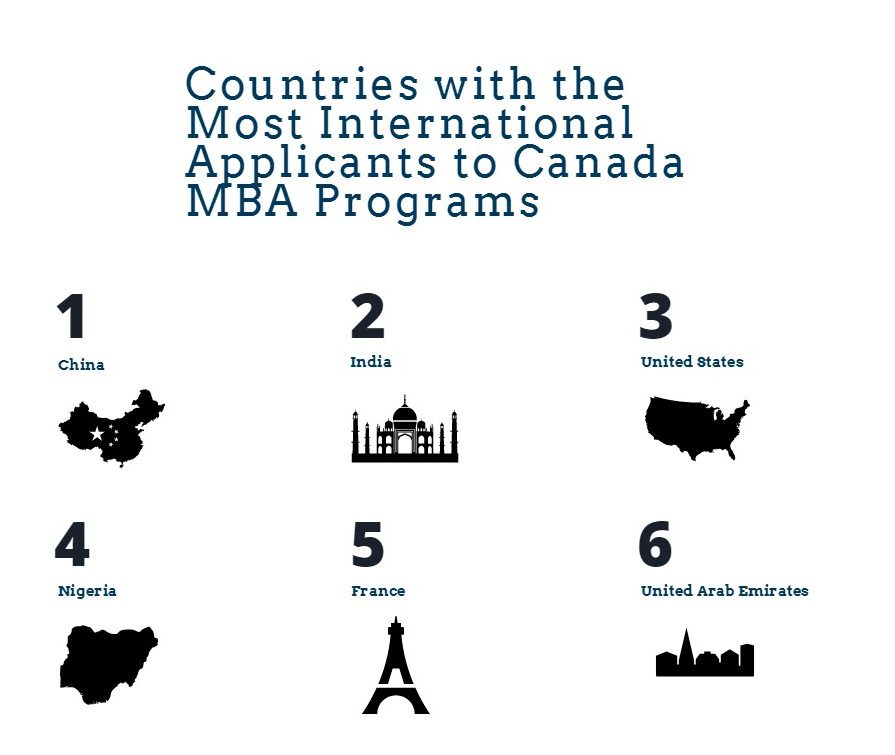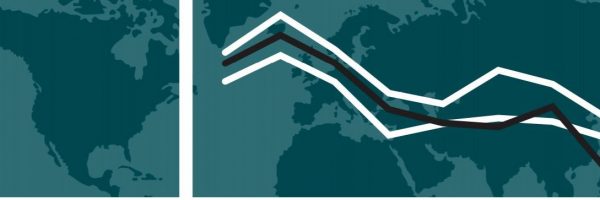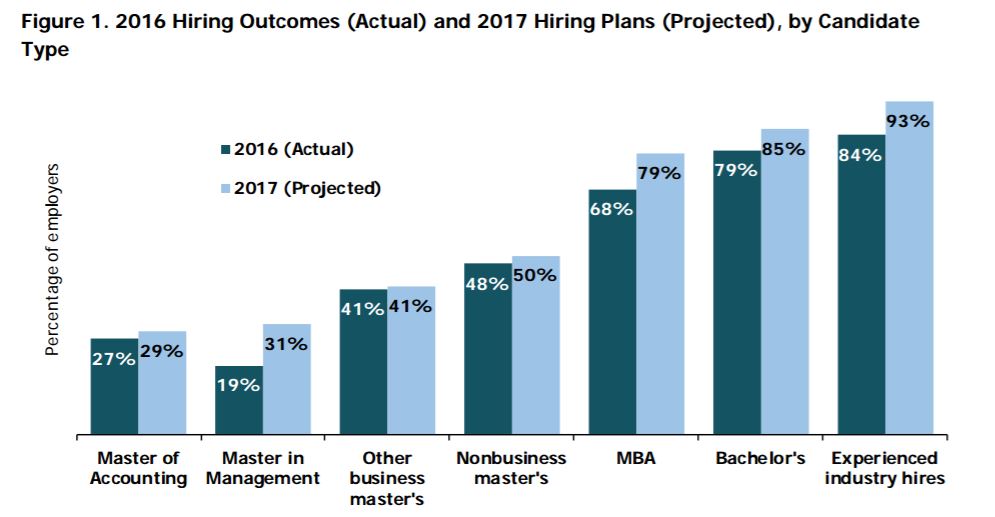Canada’s MBA Programs are Rising

The recent release of the GMAC 2017 Prospective Students Survey Report revealed some mixed revelations. While the status of smaller U.S. school MBA programs may be up in the air, international programs, particularly in Canada, are looking rosier than ever.
Overall, schools in Canada and Europe saw a 50 percent-plus increase in application volume from international candidates, of which GMAC speculates may be a result of political turmoil, particularly in the United States. This is a direct contrast from four years prior, in which less-than half of the Canada, UK, and other European business schools were seeing international applicant growth.
In the GMAC survey, an anonymous Canadian full-time MBA also noted, “The US presidential election has had a impact on our application numbers. Many international students choose Canada as their first choice.”
Niki da Silva, the Managing Director of the full-time MBA program at the Rotman School of Management at the University of Toronto, recently spoke with the Globe & Mail after the release of the report, saying, “This is our opportunity. We have to be anti-Canadian in this moment and really talk about what we are doing. We don’t tend to do that but we need to.”
By The Numbers
Results from the survey found subtle yet distinct differences between the international applicant pools in the major MBA location destinations.

In the United States, Europe, and Canada, according to GMAC, the two most prolific countries with international applicants were unilaterally India and China, which came in either first or second place for each region. However, for Canada, the remaining top 10 international countries with high applicant pools differed slightly from the U.S. and Europe, especially regarding Middle Eastern and North African countries. The United Arab Emirates (6th most), Tunisia (9th), and Iran (10th) were no where to be found in either the U.S. or European top ten.
Breaking the applicant pools down further, GMAC found an unsurprising correlation between the distribution of citizenship by application for Canada and the U.S. and the new data trends. After Europe, which had the most diverse applicant pool (a tricky stat since Europe is qualifying every country on the continent, while the U.S. and Canada are counted as singular entities), Canada had the world’s second biggest international pool of applicants, with less than 50 percent of Canadian business school students having official Canadian citizenship.
Domestic applications, in contrast, are actually down. But the international pool in Canada is swelling, creating substantial overall growth.
“International applicants comprised the vast majority of applications to business programs in Canada—64 percent of MBA applications and 88 percent of business master’s applications.” – GMAC
Gregg Schoenfeld, GMAC’s Director of Research, also noted upward trend for Canadian schools, saying, “This is the first time in the past five years that the majority, in fact three-quarters [of Canadian schools in the survey], are saying they are growing international volumes.”
“From a speculative point of view, it seems that the U.S. political climate has essentially driven candidates to Canada,” he continued.
YOU MIGHT ALSO LIKE: The Highest Starting Salaries for Toronto MBA Grads
The move to enroll more international applicants in Canadian schools started to emerge several years ago. Following lower periods of domestic enrollment, Canada’s MBA programs made a concerted effort to bring in more talent from abroad, creating a multi-year spring in growth that has not only benefited school enrollment, but fostered a positive international environment.
According to Global Affairs Canada, the result has been a positive economic boon as well. Upwards of 90,000 new jobs were created for Canadians just two years prior, while adding $10 billion to the country’s economy.
Tim Daus, Executive Director of the Canadian Federation of Business School Deans, previously noted that the trend was partly made possible because of the country’s flexible immigration policies, saying, “Canada’s visa requirements are much more flexible than other countries’, which gives us an edge. That makes a big difference for students who want to stay and work afterwards.”
Canadian Accolades
The substantial growth Canadian business schools have seen may not solely be the result of political overtones, rather, that many of the country’s best institutions only continue to improve.
The Schulich School of Business at York University in Toronto earned some hefty recognition from Forbes‘ recently released “Best Business Schools” global rankings, earning the 8th spot among the best international two-year program in the world. Schulich grads, Forbes claims, can expect a five-year net gain of over $48,000.
Last year’s Bloomberg BusinessWeek ranking of the best non-U.S. business schools also recognized both the Ivey Business School at Western Canada University and the Rotman School of Management among the top 25 programs in the world. Both the aforementioned Ivey and Rotman programs were recognized among the world’s 100 best by the Financial Times this year as well.
MBA Hiring Projections: It’s Time To Go To Business School

If you’re growing weary of all the MBA data forms and essays and interviews and anxiety—keep your eyes on the prize! That light at the end of the tunnel? Well, recent hiring projections from the Graduate Management Admission Council (GMAC) suggests it just keeps getting brighter.
Each November, GMAC conducts a short year-end poll of employers, asking them to reflect on what business school graduate hiring actually looked like that year and what they anticipate hiring to look like in the year ahead. GMAC’s most recent Year-End Poll of Employers Report, released yesterday, paints a promising picture of hiring trends for upcoming crops of graduating MBAs.
“We continue to see optimism—companies are still optimistic about the future, and they are expressing that in their desire to hire business school graduates,” says GMAC Director of Research Gregg Schoenfeld, one of the report’s author. “The overall message here is that it is a good time to go to business school and, from prospective candidates’ perspectives, it’s a good time to move forward on that goal to apply.”
Indeed, nearly eight out of every 10 employers (79 percent) say they expect to hire MBA graduates in 2017. That’s up from the 68 percent who hired MBAs in 2016. Of those planning to hire MBAs in 2017, almost as many (78 percent) say they plan to hire as many or more MBAs as they did the year before.
Not only do more employers expect to welcome MBAs into their ranks—the majority plan to pay them more as well. More than half—58 percent—said they expect to increase starting salaries for MBAs in 2017 at or above the rate of inflation. Another 40 percent report that they will maintain 2016 salary levels.
Explaining this bullishness, in part, is employers’ confidence in the value MBA graduates bring. In the most recent poll, 96 percent of responding recruiters said that hiring recent business school graduates creates value for their companies. And 71 percent cite bringing on MBAs and non-MBA business master’s graduates as a priority in their hiring plans.
GMAC’s 2016 Year-End Employer Poll surveyed 167 recruiters representing 140 companies in the United States and 26 other countries around the globe. Among the respondents were 36 companies in the Fortune 500, including 21 Fortune 100 firms. The majority of respondents—71 percent—were U.S. companies, which is typical for this survey, according to GMAC’s Schoenfeld.
The good news extends beyond MBAs—in fact, more employers plan to hire new employees in each candidate type they were asked about than they did in 2016. This includes candidates with master’s in accounting and management, as well as other business master’s, non-business master’s, bachelor’s and experienced business hires. Roughly a third (31 percent) expect to hire candidates with master’s degrees in management (31 percent) and accounting (29 percent).

Source: GMAC 2016 Year-End Employer Poll Report
